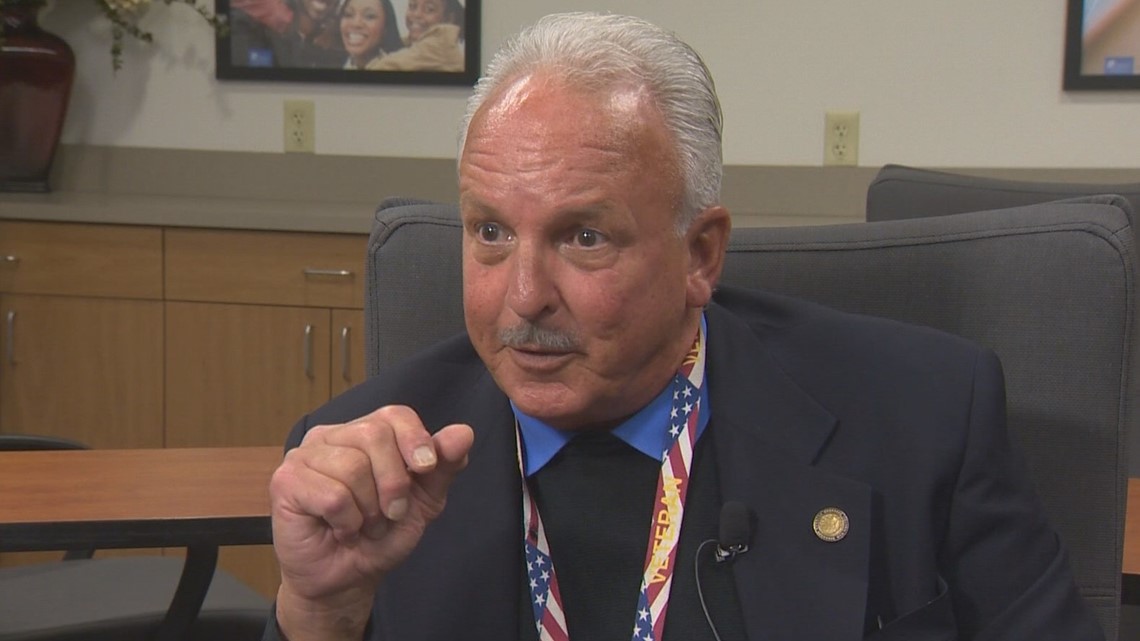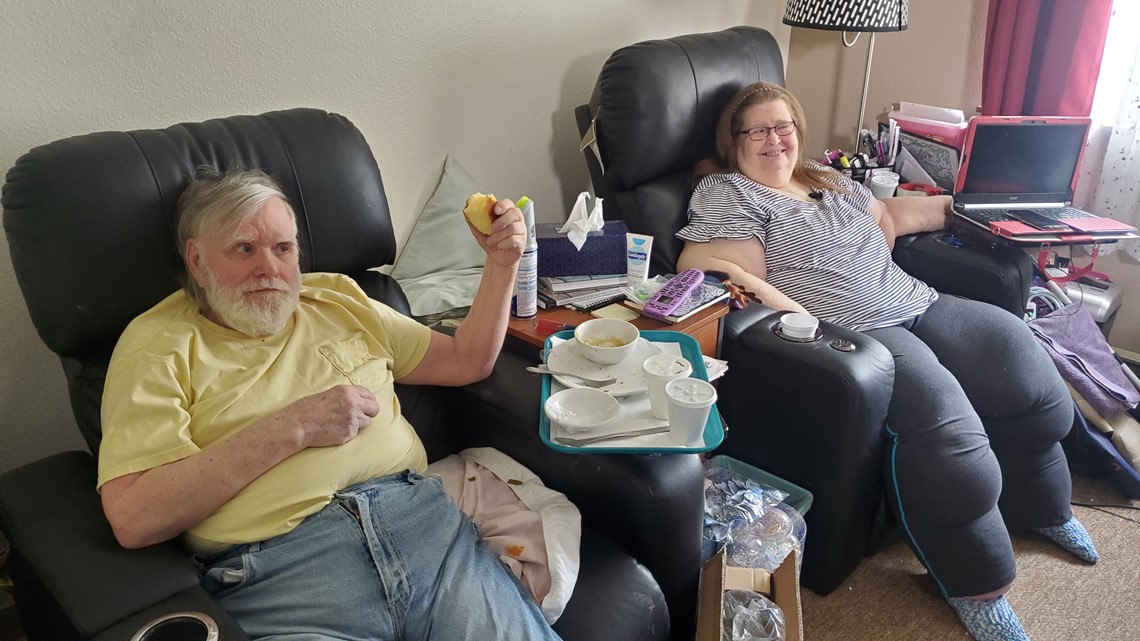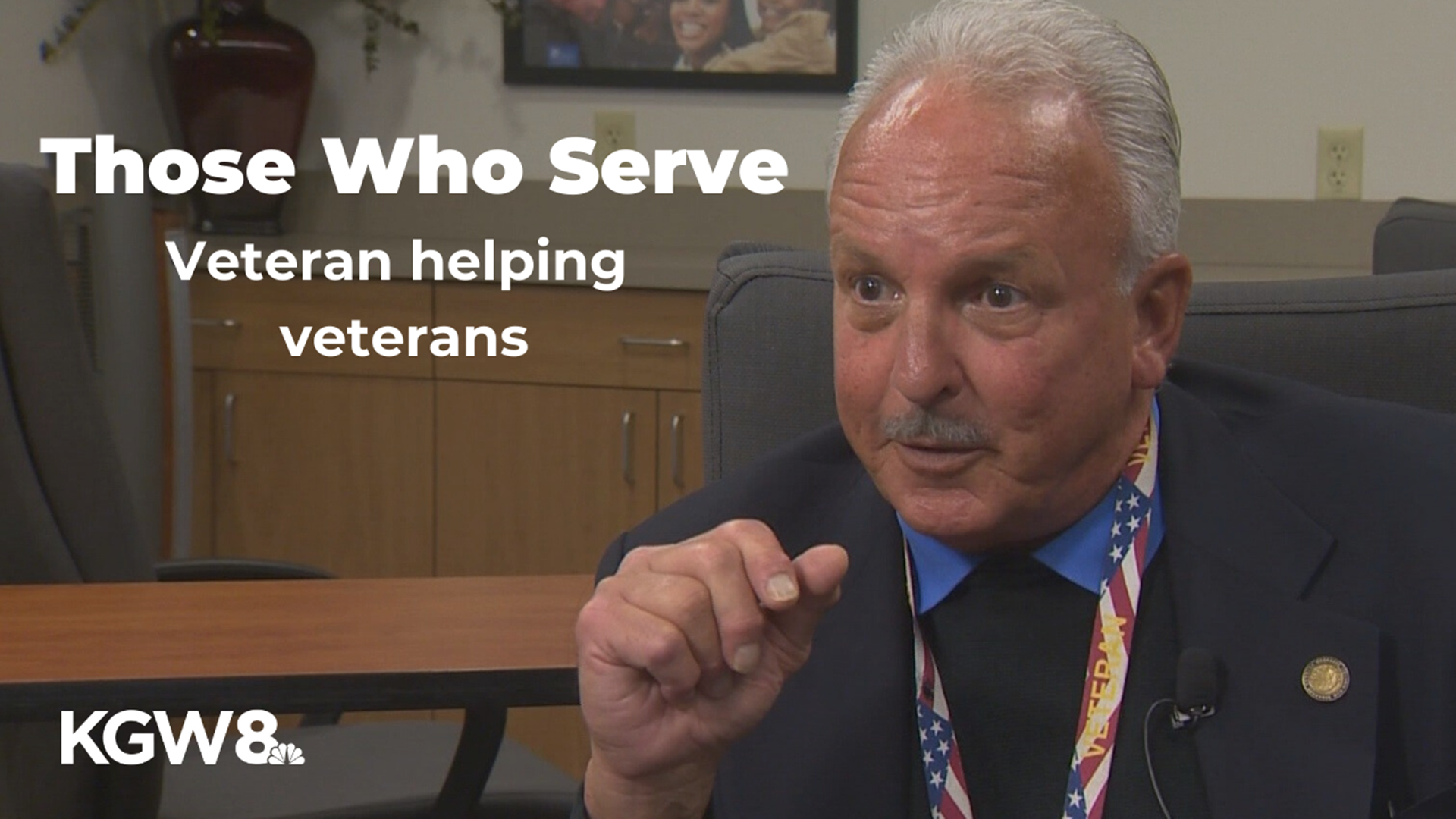VANCOUVER, Wash. — A Vancouver veteran working for Washington state is retiring after a career of helping others.
Bill Allman found a way to match military veterans with federal aid that they had earned but did not realize they were qualified for, while at the same time saving the state money.
He also showed other state leaders how to do the same thing.
In the early 2000s, Allman worked as a financial manager for the state sifting through the claims of people who had no money but needed long-term care.
He used a computer program called PARIS to make sure people were not getting the same benefits from multiple states. He knew that if they had a house, it would be sold when the person died to pay the state back for the long-term care.
But the deal is different and the long-term care benefits are much better for military veterans. Allman realized many veterans were not aware of the benefits.
“I’m just thinking that…somebody needs to let them know,” he said.


And he decided that somebody should be him.
He started hunting for veterans in the PARIS database. One of the fields of information it collected was whether the person was a veteran.
He found thousands who had earned benefits, but they did not know it, and they were leaving money on the table. He connected the dots, and then connected the people.
“I guess that was my niche. I had an epiphany. I was relentless,” said Allman.
The program is a jackpot for states. It directly saves them money.
Moving veterans from state Medicaid paid for with state dollars to federal veterans benefits paid by the federal government saved Washington state serious money.
“We’ve saved $100 million since we started,” said Allman. “In Washington state, that’s over 15 years."
Allman loves digging into the data to help veterans.
“What is their diagnostic code. Is it cancer? Diabetes? And when I narrow it down to like they have cancer or diabetes, I isolate the list further then send it out lists to the state VA," said Allman.
He said he’s directly or indirectly helped thousands of veterans and their families in Washington state. It’s earned him trips to the White House to receive awards for his program.
Paul and Kathy Prather are two people who Allman helped.
“We were allowed to keep $74 each and that’s it,” Kathy said.
Paul served in the Navy. He now has dementia. After he had a stroke and Kathy had her own health problems, they moved into assisted living using state Medicaid.
They were out of money, living on Social Security. Medicaid took most of that to pay for the place they live. Combined, they had just $148 a month for spending money.
“That’s got to last you for the whole month. You got to buy personal things out of that. Trying to save for the grandkids' birthdays or Christmas is a real challenge,” said Kathy.


Allman found them and got them qualified for a federal program, something called Aid and Attendance.
“This is really important to the veterans who are out there right now and are long-term care related and in assisted living or adult family home,” said Allman. "It’s an extra bit of money you are entitled to every month because you are in need of a third party to care for you,” Allman said.
The payment the Prathers now get from the federal government means they have $900 a month for spending instead of the $148 they used to have.
Now, they can help the grandkids.
“So now we are very blessed in that respect,” said Kathy.
Over time, matching veterans and their benefits became a bit of obsession for Allman. He spread the word to 32 other states which have since started similar programs.
Why is he so passionate about his job?
He said it stems from his experience coming home from the Vietnam war.
“I was there when the war ended in January 1973 -- the Paris Peace Accords. When we came back, we didn’t have that resource,” he said.
All these years later, the emotional wound is still raw. He turned that pain into action.
“When we came back, we didn’t have the resources available to us that they have today. And I’m so glad that they do today. Because we were kind of like fending for ourselves. And it was a bad time in the country as it was. So, it was my way of giving back,” said Allman.
Allman will walk out of the office for the last time in December, confident the program he launched 17 years ago is going strong.
He’ll have more time to spend with his wife Traci and his family as he thinks about the next chapter of his life, which will likely involve helping veterans.

